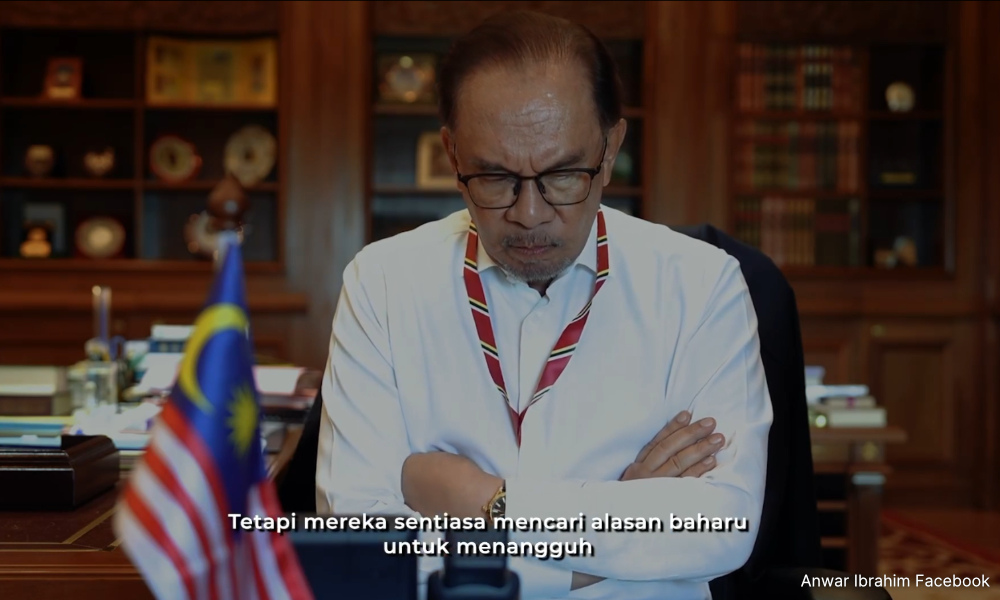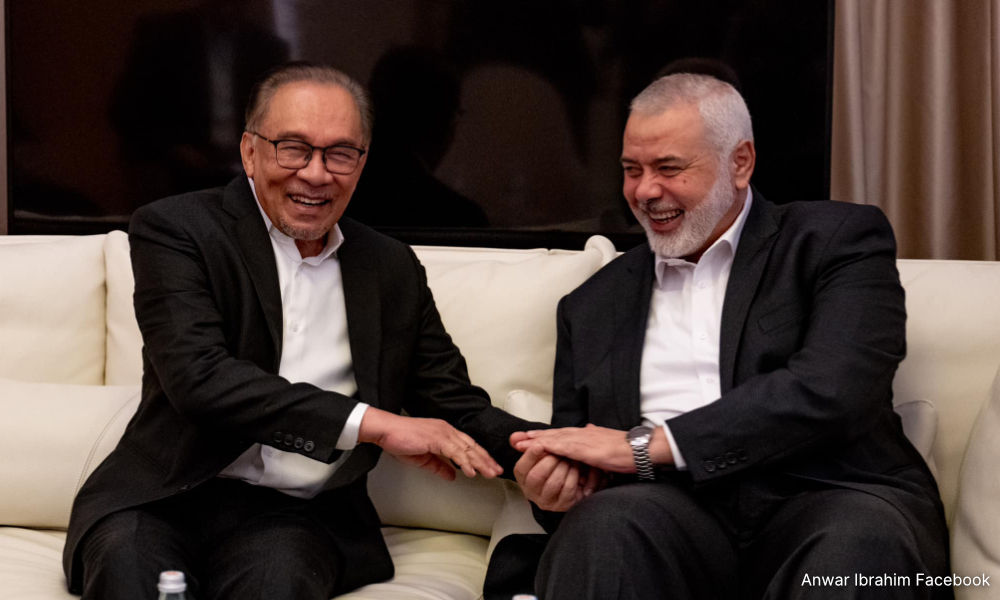Prime Minister Anwar Ibrahim has described the killing of Hamas leader Ismail Haniyeh in Iran as a “heinous murder”.
He said it was designed to derail the ongoing talks aimed at ending the carnage in Gaza that has claimed over 40,000 lives.
“Only the heedless and unconscionable will not see the need to intensify pressure on Israel to stop their murderous rampage,” he added.
In condemning Ismail’s assassination, the premier said it was patently clear it could have been carried out in an environment of utter impunity.
“I am deeply concerned about what this tragedy would mean for the Palestinian people who have already been so cruelly subjected to so much pain, hardship and suffering for so many decades.
“Detractors who have criticised me for meeting with Ismail in the past fail to appreciate his profound desire for a peaceful Middle East and a Palestinian nation restored to its rightful dignity.
“I mourn the loss of a dear friend and a valiant advocate for his people. Al-Fatihah,” he said in a statement today.
Anwar has been vociferous in opposing Israel’s military aggression against Palestine since its onset.
At a rally in solidarity with Palestinians in Kuala Lumpur last year, Anwar also revealed that he had received threats due to his unwavering stand on the matter.
In May, Anwar said he met Ismail in Qatar and conveyed his condolences to the Hamas leader, who lost several family members in an air strike a month before.
Earlier, Malaysian politicians from both sides of the political divide had also condemned the killing and paid tribute to the slain leader.

Moderate voice
Ismail was born in the al-Shati refugee camp in the Egyptian-occupied Gaza Strip in 1962.
The 62-year-old was involved in the pro-Palestinian cause from his university days and joined Hamas when it was established in the first Palestinian intifada (uprising) in 1987.
He graduated with a Bachelor’s degree in Arabic literature in the same year.

Working his way up in Hamas’ ranks, Ismail finally became the head of its political bureau in 2016.
According to Reuters, Ismail was seen as a moderate voice within the group by diplomats despite his tough rhetoric.
In 2012, when Reuters reporters asked him if Hamas had abandoned the armed struggle, Ismail replied, “Of course not” and said resistance would continue “in all forms - popular resistance, political, diplomatic and military resistance”. - Mkini

No comments:
Post a Comment
Note: Only a member of this blog may post a comment.